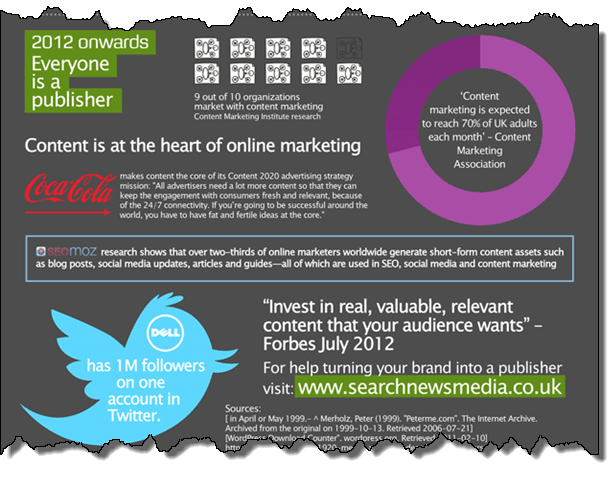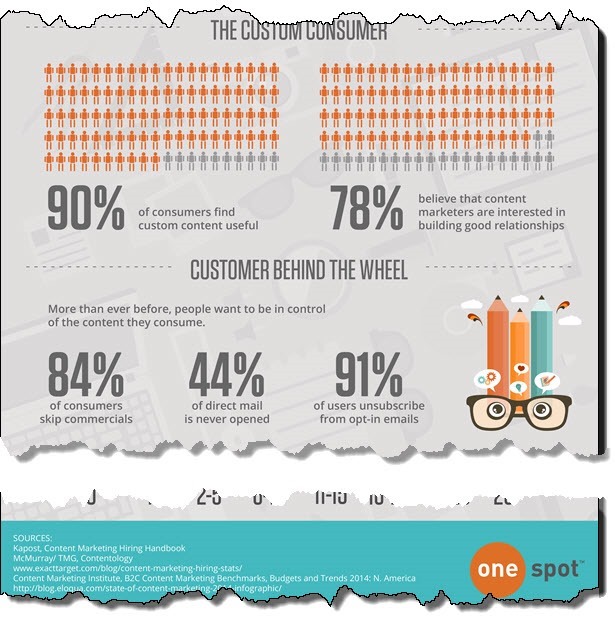Brand storytelling is nothing new, however it is a point of difference for those companies that are doing it right. Companies that are crafting strong brand stories are engaging with their customers in a true marketing form instead of hammering advertising messaging. These marketers are building strong connections with customers. In an age where many components of life have become impersonal, scheduled, rushed and mundane they are building that personal connection to a brand.
A Successful Model
For example, how about branded storytelling through a full length movie! Yes, Lego managed that execution flawlessly earning $467 million worldwide and have scheduled a sequel for a 2017 release! Now obviously their brand and audience are a great fit, but it illustrates how a well-planned content program can become a blockbuster - and not just at the movies!
- Read more about the content marketing success of Lego here...
Why Story-telling?
In this fast paced society, consumers are demanding lots of information, and control of the information that is coming towards them. They want to decide on their terms where and at what times they consume content and in what format. They decide if they want to continue conversations with brands through social media and interact with the content. When that organic interaction happens - credibility and the personal element is built. Companies need to be able to craft these stories and develop engaging content on a regular basis.
We know that storytelling resonates, it is after all a social art form that has been used since the beginning of mankind by all cultures to teach, entertain and provide moral guidance. It's a powerful way to communicate information, and a well-developed story is easily memorable and therefore has the ability to be re-told over and over again by word-of-mouth.
Here's The Key
It's been said many times before but crafting responsible, truthful and accurate content is what will assist in building consumer engagement and brand loyalty. Don't inundate your customers or potential customers with vast amounts of mediocre, boring content. It has to be useful, engaging and have that certain joie de vivre! Here's some helpful guidelines;
Storytelling Do's
- Be personal - tell your story/history as it happened.
- Be real - have your company and team relatable and approachable.
- Be consistent - and tell that brand story across multiple channels in various forms.
- Be engaging & fun - delight your readers with the element of surprise (joie de vivre)
- Be visual - develop videos, use images, slides, illustrations or infographics.
- Have a voice - this is part of your branding, make sure you understand your tone and voice and be consistent.
Storytelling Don'ts
- Don't be unexpressive - show emotion, give it that personal touch.
- Don't be fake - be genuine, authentic and real.
- Don't be dull, repetitive and unimaginative - be vivid and remarkable.
- Don't talk about your company as if you're narrating the story (third person) - after all the story is the companies legacy, it's you and everyone that works for your brand.
Brand Publishers
Increasingly we are seeing brands as publishers. Whereas some bigger brands are now building newsrooms and editorial teams as part of their content marketing plans. It has changed, in part, the way in which Public Relations fits within companies.
 The Evolution of Publishing
The Evolution of Publishing
We've seen the shift towards brands becoming media companies, and the traditional media companies now promoting the content. In order for the brands to be successful publishers, they need to build content that provides value and is brand centric but also follow the same formula as publishers which includes pain-staking fact-checking.
According to the social publishing experts on a panel, moderated by Digitas' Jordan Bitterman, the shift to brands as publishers is, above all else, a step toward re-humanizing advertising and developing emotional connections with content. Here's an interesting article which predicts the future of brand publishing.
Search Marketing
Search marketing has evolved over the years, and marketers realize that websites have taken on a tremendous load of the responsibility for the marketing of brands. With the changes in Google's Algorithm, that favours sites with an abundance of relevant content, there is no choice but to produce content that naturally attracts visitors.
That's relevant and digestible content about your offering, your brand(s), who you are as a corporation and what you represent, your corporate vision and responsibilities. The more content, the better - leave no stones unturned but most importantly - craft it in a way that is engaging enough to be read, shared and provide value!
Conclusion
Brand storytelling when done authentically connects companies with their customers and assists in building a human connection, credibility, loyalty and even if you're lucky customer Evangelist's. After all stories assist in shaping culture, the way in which we interact within our daily lives and also the brands in which we interact with because we can actually relate to them.
Next Steps
- 7 Ways to Work Storytelling into Your Marketing (Mandy Boyle)
- Toss Out the Essay: The 7 Alternate Styles for SEO Copywriting (Mandy Boyle)


